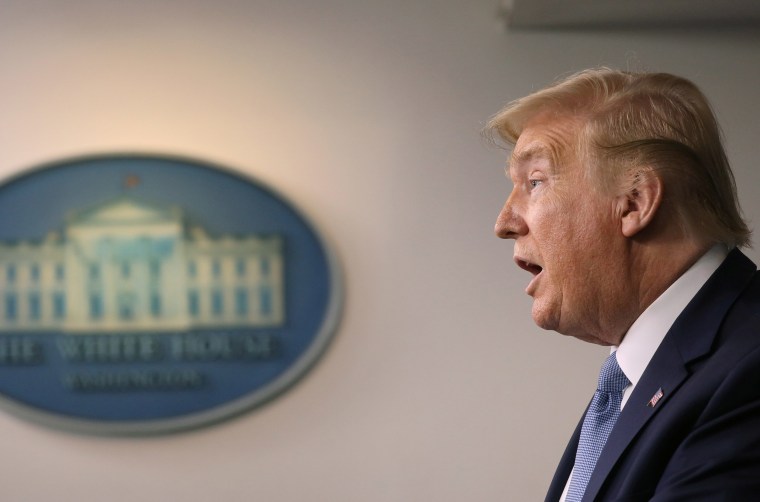It took eight weeks for Donald Trump to shift his tone on the coronavirus outbreak, but the president who appeared in the White House press briefing room yesterday was clearly reading from a qualitatively different script. As NBC News' Jonathan Allen explained:
For the first time Monday, President Donald Trump laid out a truly bleak picture of America in the time of coronavirus -- pointing to an "invisible enemy" he said could plunge the nation's economy into recession and possibly even require quarantines of geographic "hot spots," if not the whole country. The abrupt shift in tone matched a more gradual acceptance by the president that his response to the pandemic so far has failed to inspire confidence in the public, investors and lawmakers.
It's difficult to say what prompted the shift in tone. Maybe Trump received a sobering briefing that shook him on a personal level. Perhaps he realized happy talk and irrational optimism wasn't helping with the crisis, and in order for the federal response to be more effective, the president would have to acknowledge some painful truths.
Whatever the motivation, Trump at least sounded different yesterday afternoon, even if that meant contradicting his earlier messages, even if his posture may revert back at any time.
There were, of course, some exceptions. Asked on a scale of 1 to 10, how he'd rate his response to the crisis, the president replied, with a straight face, "I'd rate it a 10." Given the scope and scale of the White House's missteps, and the consequences of these misjudgments, that's not an assessment anyone should take seriously.
But perhaps most importantly, Trump also declared yesterday, "We have a problem that a month ago nobody ever thought about."
To a very real extent, this was intended to serve as an excuse of sorts: the White House is struggling to get a handle on an escalating crisis, the argument goes, but that's partly because it didn't have time to fully prepare.
Except, that's not quite right. A month ago, not only were plenty of people thinking about the coronavirus, they were pleading with the administration to say some of the things Trump finally got around to saying yesterday. Indeed, both the New York Times and the Washington Post recently put together round-ups of instances in which the president personally and publicly downplayed the significance of the crisis, and both timelines feature Trump saying all kinds of unhelpful things a month ago.
Jon Chait added yesterday, "In January, two former Trump administration officials wrote a Wall Street Journal op-ed pleading with Trump to take the coronavirus seriously. Almost two months ago, Joe Biden wrote an op-ed demanding a more forceful response. Trump spent this entire period relentlessly denying the United States faced any danger at all."
I'm glad Trump shifted his stance yesterday, and for all of our sakes, let's hope the administration's actions reflect his more sober acknowledgements. But before the president strains himself while patting himself on the back, and pretends the crisis was non-existent a month ago, it's worth appreciating the fact that many were ringing the alarm, pointing to steps that could've been taken at the time to mitigate the problem. Trump was the one ignoring them.

